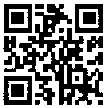My lads had read/listened to the accompanying CD narration of the story for homework, and been asked to tackle some of the challenges from the workbook to get into the nitty-gritty of the story.
We played the "Ping the next word" game I described last week, and patently obvious who had paid more attention at home than the rest. Well done Takuro.
That got us refreshed with the storyline & characters, blew away the after-school cobwebs.
Vocab mining: I asked the students to find how many times they could find the word 'pirate' or 'pirates' in the book. Not a high usage word you may very well argue (and I'd agree - Matsumoto is in the middle of a landlocked prefecture!) but it does crop up with persistent regularity in C.ESOL Young Learners exams...good to know?! And it was a new word for them - 'say' it when you see it. Which worked out at thirteen times each. A drill, perchance?
Grammar decoding: I asked students to underline all the action words they could find with an 's' on the end with a blue pencil (no special significance with the colour!). Pirates? No. Looks? Yes. Says? Yes. Quickly figure out what is a verb and what is not ("Can you pirate?"). Next, we looked together for action words without an 's' on the end & underlined them in another colour (red, as you ask). Similar number, often the same word. How does that work then? Good suggestions (in Japanese was OK - I only know the right words so all the other ideas get a frown!) until we narrowed it down to the word or words before the verb. Aha. The he/she/it thing.
Stick your tongue out & colour it: Finding voiced & unvoiced /th/ sounds (as a review - we have discovered this frothy pair of sounds in our phonics work lately). I HATE katakana and the myriad bad habits it insists Japanese learners are strangled with (there are no /th/ phonemes). Students tasked to find every /th/ sound and circle them either pink (unvoiced) or orange (voiced). Again, say the sounds to check them - 'imaginary' sounds in your head have no voice/teeth/tongue or lips involved do they? And ever so hard to monitor. Altogether, 46 'the/they/them' and a slippery single 'thank'. A lot of practice and a penny dropping about just how frequent this sound occurs!



No comments:
Post a Comment
By all means leave your comments - please do not be offensive, abusive, or rude. We ask you to sign your comment as well, please.